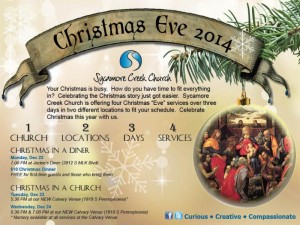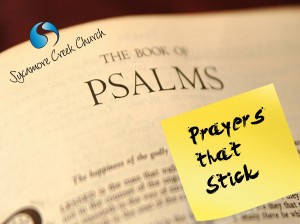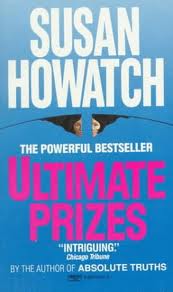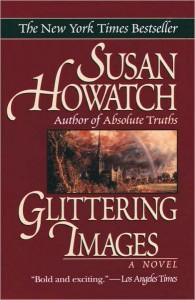
The First Carols of Christmas – The Benedictus
Sycamore Creek Church
December 21, 2014
Tom Arthur
Merry Christmas Friends!
Christmas and Christmas Eve are just around the corner. I’m excited about SCC’s Christmas Eve services this year. We’re going to be 1 Church in 2 Locations over 3 Days with 4 Christmas Eve services! We’ve sent out 10,000 postcards to our neighbors inviting them to celebrate Christmas Eve when it works for them. We handed out almost 1000 Christmas Eve invites with MSU Men’s Basketball schedules on the back at last Sunday night’s game. So how is your own inviting going? I want to continue to encourage and challenge you to invest in and invite three people to Christmas Eve this year. Write those names down, and then pray for them. Get on our Facebook event page right now and share it on your own timeline. Make some special individual invites through Facebook. Do it right now. I think it’s going to be a great Christmas at SCC this week!
So today I want to wrestle with a problem. On one level it’s a problem we’ve just been dealing with. Here’s the problem: we tend to want the benefits without the cost. We don’t want to go all the way. We want the ends without the means. We want to be fans of Jesus, not followers of Jesus. We want the benefits without the cost.
When it comes to our church, we want the church to grow and reach more people, but we’re not always willing to take the challenge of inviting someone. But this shows up in all kinds of other places too. Take for example my own desire to play the guitar. I’ve always wanted to learn to play the guitar. Jeremy, our worship leader, led a small group this past summer that was about learning to play the guitar. I participated and while I was in the group I set about fifteen minutes aside each day to practice. But since the group has been done, I haven’t really wanted to put the time in that is needed to learn to play it. I want the benefit of knowing how to play the guitar and the joy that comes with it, but I don’t really want the cost of setting time aside each day to practice and learn.
Wanting the benefit without the cost shows up all over the place. We want money without work. We want energy without exercise. We want health without nutrition. We want knowledge without study. We want healthy relationships without confession and forgiveness. We want happiness without holiness. We want salvation without righteousness.
Today we’re continuing a series called The First Carols of Christmas. We love singing Christmas carols this time of the year, but do you know the first carols? There are four books in the Bible that tell the story of Jesus’ life. One of them was written by a doctor whose name was Luke. Luke tells the story of Jesus’ birth in a unique way. It’s almost like a musical. People are talking normally and then all of a sudden they break into song. There are four songs in Luke’s telling of Jesus’ birth and one scene that was later turned into a song. We’ve look at two of those so far: Gabriel’s Ave Maria and Mary’s Magnificat. Today I want to look at Zechariah’s Song which is also called the Benedictus, or Blessing. I want to explore the cost that Zechariah sings about that goes along with the benefit.
Zechariah is the father of a better known figure, John the Baptist. Zechariah is a priest, and his wife, Elizabeth, is barren. One day Zechariah is chosen by lot to offer incense in the temple. While in the temple he meets Gabriel who tells him he will have a son, and he is to name his son John. Zechariah isn’t quite so sure about this, because he and Elizabeth are old and past the childbearing years. So he asks Gabriel how he will know this is going to happen. For his lack of faith, Gabriel strikes Zechariah mute until John is born. So Zechariah goes home mute and he and Elizabeth conceive a child. He may not have had much faith with Gabriel but he had enough faith to jump into the sack with his wife! In the meantime, Gabriel goes to Mary, and says, “Hail Mary, full of grace!” This is the Ave Maria. Then Mary goes to visit Elizabeth and sings the Magnificat. Then Elizabeth gives birth to a baby. They take him to the temple to be circumcised, and the temple leaders ask what his name will be. Elizabeth says that his name will be “John”, and the temple leaders wonder why he’s not being named after his father, Zechariah. Zechariah writes “His name is John,” on a tablet. His tongue is loosed, and he is able to speak again. At this point he breaks into a song that is usually called the Benedictus (Blessing) or the Song of Zechariah.
I found an animated version of this scene that I think shows well the musical nature of this story. The animation is for children, but I think all ages can gain something from watching it:
Here’s the Benedictus as found in the Bible:
Luke 1:67-79 NRSV
Then his father Zechariah was filled with the Holy Spirit and spoke this prophecy: Blessed be the Lord God of Israel, for he has looked favorably on his people and redeemed them. He has raised up a mighty savior for us in the house of his servant David, as he spoke through the mouth of his holy prophets from of old, that we would be saved from our enemies and from the hand of all who hate us. Thus he has shown the mercy promised to our ancestors, and has remembered his holy covenant, the oath that he swore to our ancestor Abraham, to grant us that we, being rescued from the hands of our enemies, might serve him without fear, in holiness and righteousness before him all our days. And you, child, will be called the prophet of the Most High; for you will go before the Lord to prepare his ways, to give knowledge of salvation to his people by the forgiveness of their sins. By the tender mercy of our God, the dawn from on high will break upon us, to give light to those who sit in darkness and in the shadow of death, to guide our feet into the way of peace, to grant us that we, being rescued from the hands of our enemies, might serve him without fear, in holiness and righteousness before him all our days.
The verse I really want to focus on is this one:
Thus he has shown the mercy promised to our ancestors, and has remembered his holy covenant, the oath that he swore to our ancestor Abraham, to grant us that we, being rescued from the hands of our enemies, might serve him without fear, in holiness and righteousness before him all our days.
Two Ways We Serve God – Holiness
We serve God in holiness and righteousness. Let’s look at both. First, holiness. Holiness means being set apart for God. What does it mean to be set apart? Well, we set things apart for special uses all the time. I set apart special decorations for Christmas. They are holy. I set apart special clothes for working in the yard. Those clothes are holy. I set apart special drinking glasses for special drinks. One set of glasses for wine, one set for coffee, and one special set for anything else. They are holy. Then I have special, set apart time with my boys every Friday morning. That time is holy. I have special, set apart time with Sarah every Friday night. That time is holy. There is also special, set apart intimacy for marriage. It’s called sex. Sex is holy. Then there’s special, set apart time for family vacations. Vacation time is holy. There’s special, set apart money for the church, my tithe. It’s holy money. We have a special, set apart candle for baptism anniversaries. It’s a holy candle. I have a special, set apart journal for prayers. It’s holy. I have special, set apart space to pray. It’s holy space. I have special, set apart toys for long trips in the car with our young boys. Those toys are holy.
Speaking of those holy special toys for longs trips…After getting home from a trip to Indy for thanksgiving and putting away those “special toys,” I had this conversation with my four-year-old:
Micah: Daddy, where are the special toys?
Me: I put them away.
Micah: Why?
Me: They wouldn’t be special if we had them out all the time.
Micah: I don’t want them to be special.
Isn’t that just about how we all react to what is holy or set apart? We say, “I don’t want it to be special. I don’t want it to be holy.” We want the benefit of special things without the cost, being set aside. We want the happiness that comes with holiness but not the cost of it being set apart.
Two Ways We Serve God – Righteousness
Holiness is one way of describing the cost of salvation, but another way of describing it is righteousness. Righteousness is being in a state of right relationships with God, oneself, others, your stuff, and the created world. Righteousness and justice are closely related. In fact, they are often the same exact word in the Bible. Righteousness is well being for all, a soundness through and through. I’m reminded of a car I saw one time up north in Petoskey. It was a real junker of car. What I would have called a hoopty. But this hoopty had some seriously righteous rims. They were fine. But somehow the whole thing didn’t work. The rims were righteous but the car was not. God wants the whole car, not just the rims. Or as C.S. Lewis puts it:
God became a man to turn creatures into sons: not simply to produce better men of the old kind but to produce a new kind of man. It is not like teaching a horse to jump better and better but like turning a horse into a winged creature.
~C.S. Lewis, Mere Christianity
Righteousness and holiness are the cost of salvation. We often want to be saved, but we don’t want to be holy and righteous. We don’t want to be set apart for God or to work on having right relationships. So here’s a big question for today:
Are you more holy and righteous than you were last year?
Two Keys to Holiness and Righteousness – Self-Evaluation
What I want to do with the time we have left is give you two tips for being holy and righteous. The first is to set aside regular time for self evaluation and examination. I suggest starting with these three simple questions:
- Am I avoiding evil and avoiding doing harm?
- Am I doing good?
- Am I staying in love with God?
I use these three questions each morning while I’m journaling. I reflect on the previous day and evaluate if I avoided harm and evil. I reflect on whether I did good. I reflect on whether I was intentional about staying in love with God.
I’ve created an inventory that we use around the end of each year or the beginning of each year here at SCC. I also use it in our partnership classes. It fleshes out these three simple rules into all areas of your life. I’d suggest taking some time as 2014 wraps up and 2015 begins to take this inventory. Then create an intentional spiritual growth plan for how you’ll seek God to help you improve in each area.
Two Keys to Holiness and Righteousness – Confession & Authenticity
If self-evaluation is the first key to holiness and righteousness, then confession is the second key. Now confession brings up a lot of negative connotations for many of us. We think of “going to confession” in a little booth and telling a priest our sins. Kind of like this Seinfeld clip:
Confession isn’t so much about a little booth and priest as it is about being authentic with yourself, God, and others. Here at SCC we seek to ignite authentic life in Christ and fan it into an all consuming flame. Authentic life in Christ is the real deal, not the hypocrisy of saying you’re one thing when you really are another. Now it’s impossible to stamp out all hypocrisy, we are humans after all. But here at SCC we’re seeking to be holy and righteous by creating an environment where you can be open about who you really are. When you examine yourself, do you share your faults with others? If not, you’re missing out on some real opportunity for growth. Take last week for example. I started last week’s message confessing about the time I was in the back of a cop car. I asked if anyone else wanted to claim that experience with me. About a third of you have been in the back of a cop car. Being authentic just means telling the truth about yourself, even when the truth hurts and isn’t pretty. In this way, self-evaluation and confession lead to holiness and righteousness.
Being Light
Zechariah continues his song:
By the tender mercy of our God, the dawn from on high will break upon us, to give light to those who sit in darkness and in the shadow of death, to guide our feet into the way of peace.
~Luke 1:79 NRSV
I want to be that kind of a church. I want to be the kind of church that gives light to those who are in darkness. Giving light is not be being perfect or having all the answers. But being light is about seeking holiness and righteousness. Being light is about having the benefit of salvation because we were willing to pay the cost. Giving light is about showing others who are in the darkness where you found light. It’s about searching for healing from abuse. It’s about searching for meaning amidst hopelessness, peace amidst a gluttony of stuff, friendships amidst loneliness, a way forward amidst confusion. Giving light is about searching for God amidst uncertainty.
It’s my hope and prayer that SCC would be a community set apart to practice right relationships, a community inviting others into the light, into holiness and righteousness. We invite them into that light especially at times like Christmas, and we do it every day. So let’s go back to that big question:
Are you more holy and righteous than you were last year?
Prayer
God, I confess that I have not always set myself apart for you. Too often I have wanted the benefits of following Jesus without actually following Jesus. Forgive me, and continue to make me into a new person. Make me into a person who is holy and righteous, set apart for a right relationship with you, with myself, with others, and with the world around me. I give myself to you today. In Jesus’ name and by the power of his Spirit working in me, amen.







Recent Comments